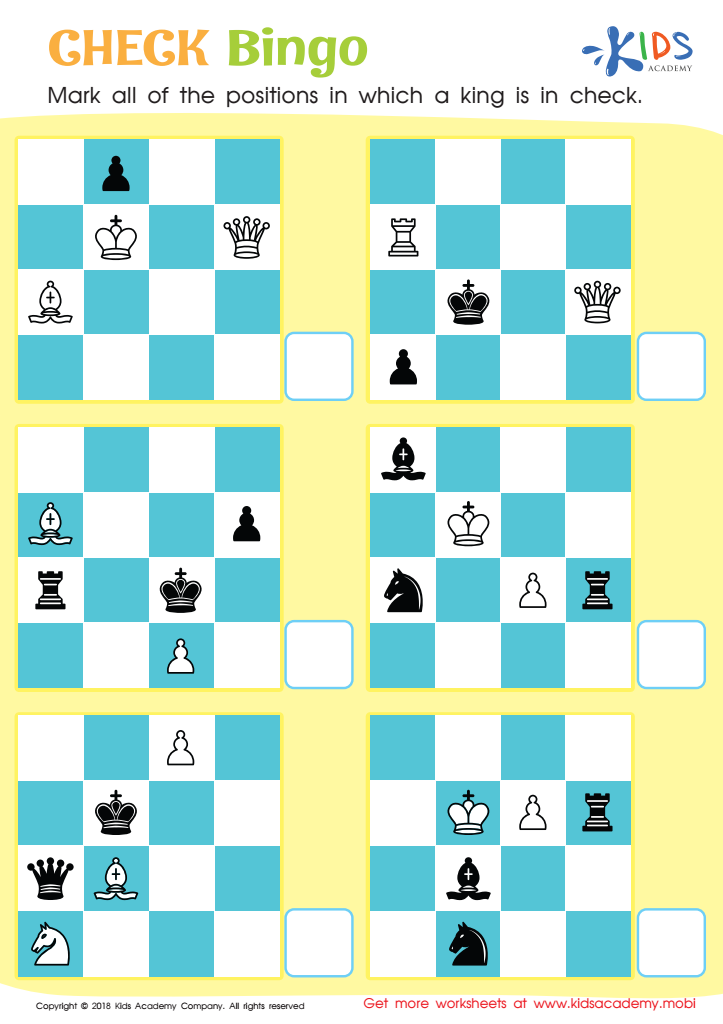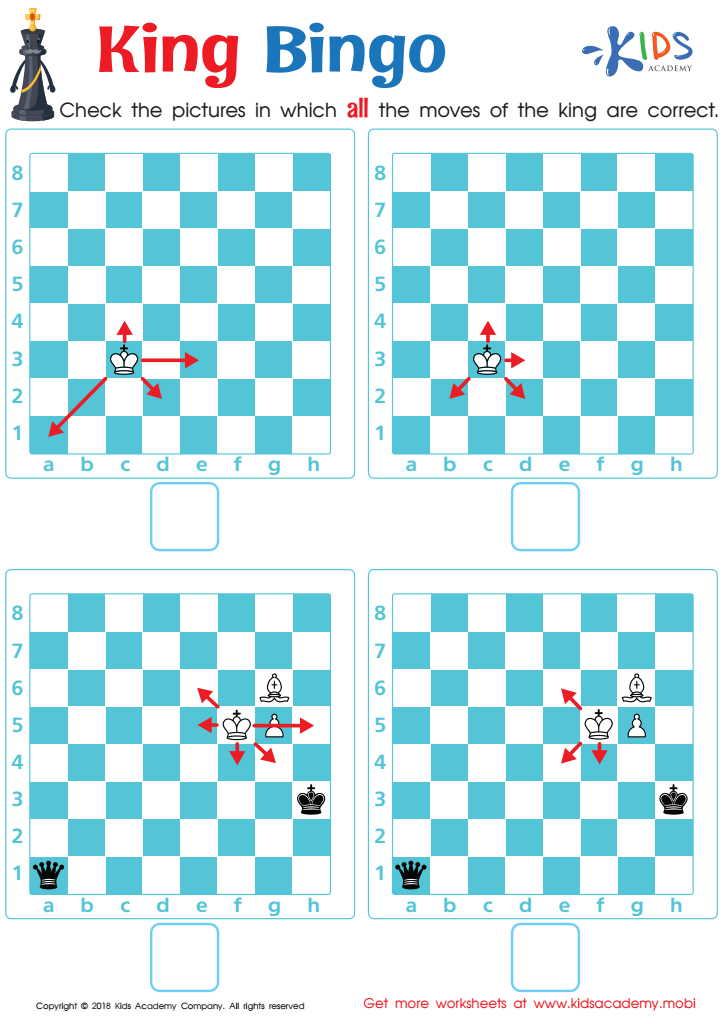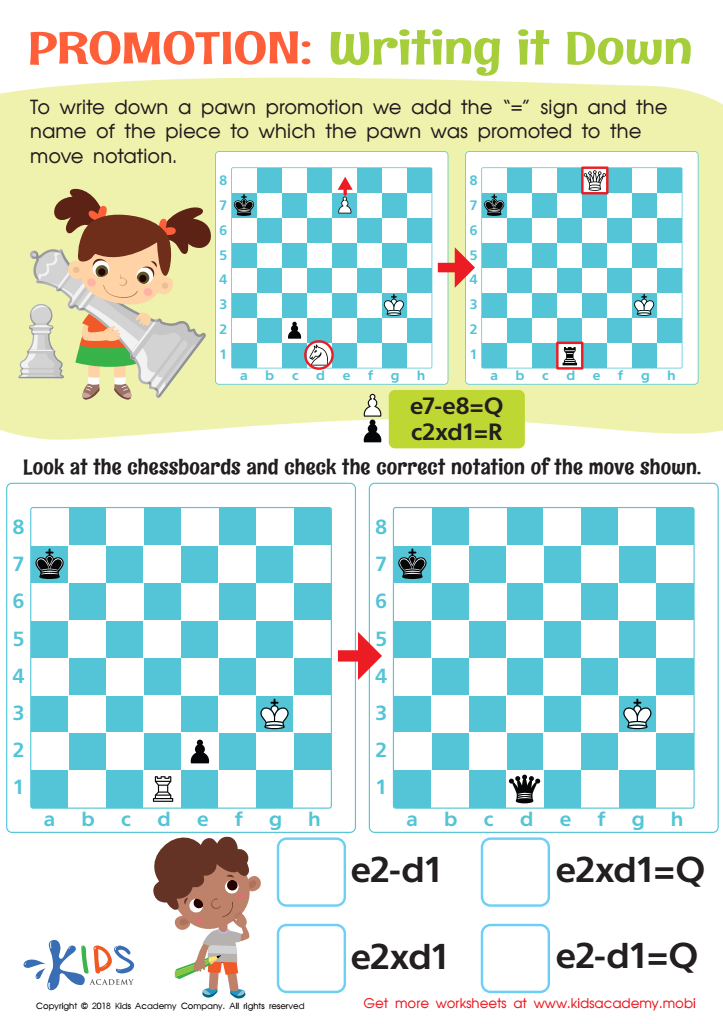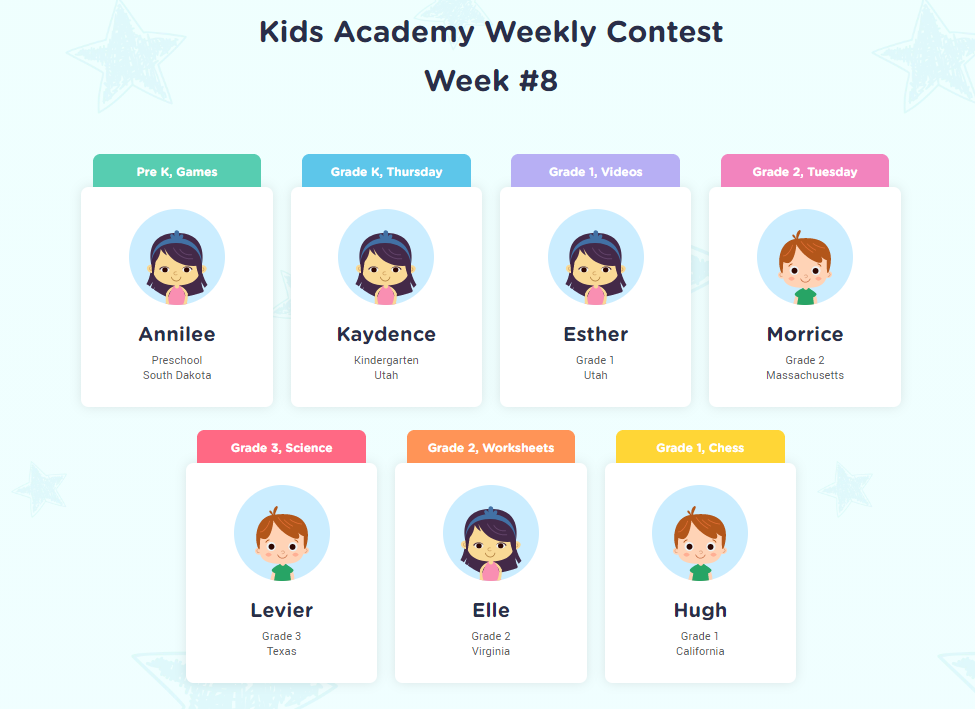Number Recognition Normal Chess Worksheets for Ages 4-6
3 filtered results
-
From - To
Enhance your child's number recognition skills with our engaging Normal Chess Worksheets, designed specifically for ages 4-6. These fun and interactive worksheets incorporate chess-themed activities, making math not only educational but also entertaining. Children will learn to identify, write, and understand numbers, all while enjoying the strategic world of chess. Each worksheet has been thoughtfully crafted to capture young learners' attention, promoting both cognitive development and fine motor skills. Join the adventure of learning through play and watch your little one build a strong mathematical foundation with our expertly designed number recognition resources. Perfect for home or classroom use!


Check Bingo Worksheet


King Bingo Worksheet


Writing it Down Worksheet
Number recognition is a fundamental skill for young learners, particularly children aged 4-6, as it lays the groundwork for future mathematical understanding. Understanding numbers is not only critical for math but also plays a role in enhancing cognitive and problem-solving abilities. When parents and teachers support number recognition, they encourage mathematical literacy, which is vital in today’s world.
Incorporating number recognition with activities like chess introduces a fun and engaging way for children to learn. Chess, often perceived as a complex game, actually sharpens critical thinking, enhances concentration, and promotes strategic planning—skills important for any learning process. By forming connections between numbers and strategic gameplay, children can learn to recognize numbers in various contexts, reinforcing their familiarity and ease with numerical concepts.
Moreover, fostering number recognition can boost confidence in children as they begin to understand patterns, sequences, and basic counting. Early mastery of these skills can lead to greater success in later math learning. As vital collaborators in a child’s education, parents and teachers should prioritize number recognition to ensure that every child develops the essential skills needed for lifelong learning and success in the ever-evolving educational landscape.
 Assign to My Students
Assign to My Students















